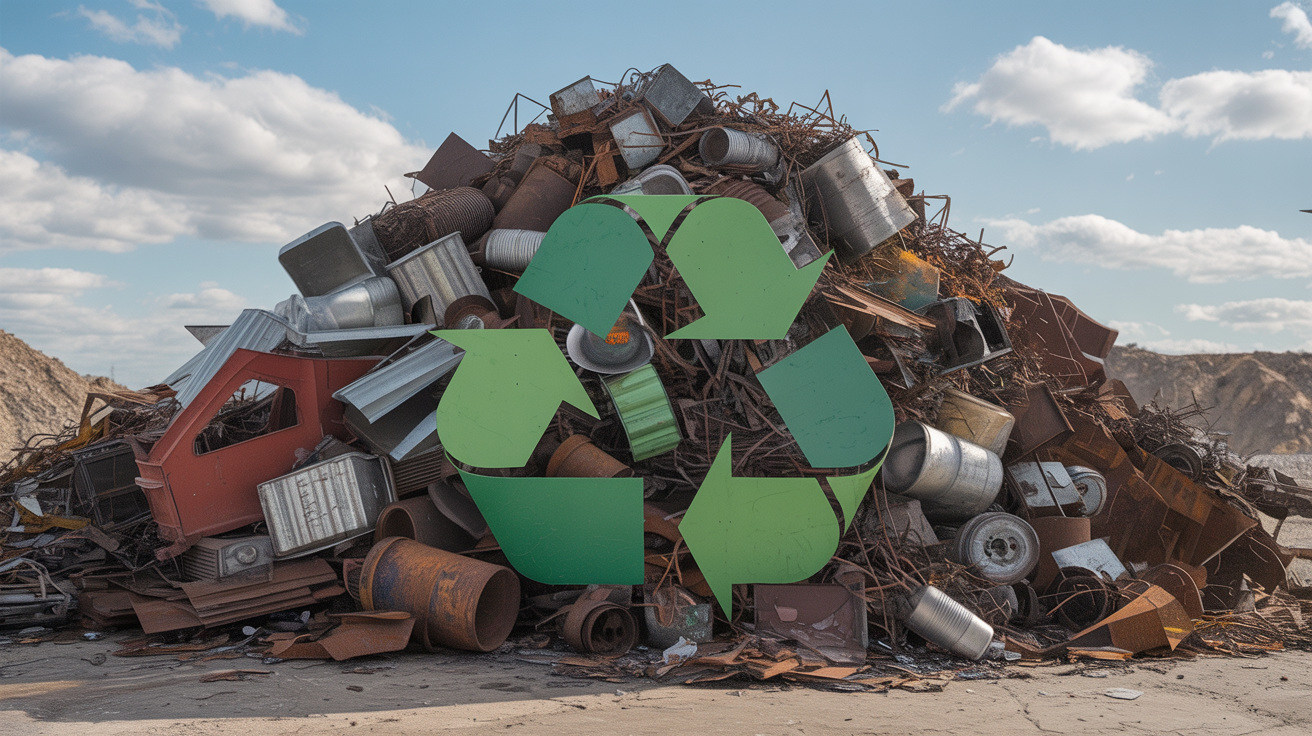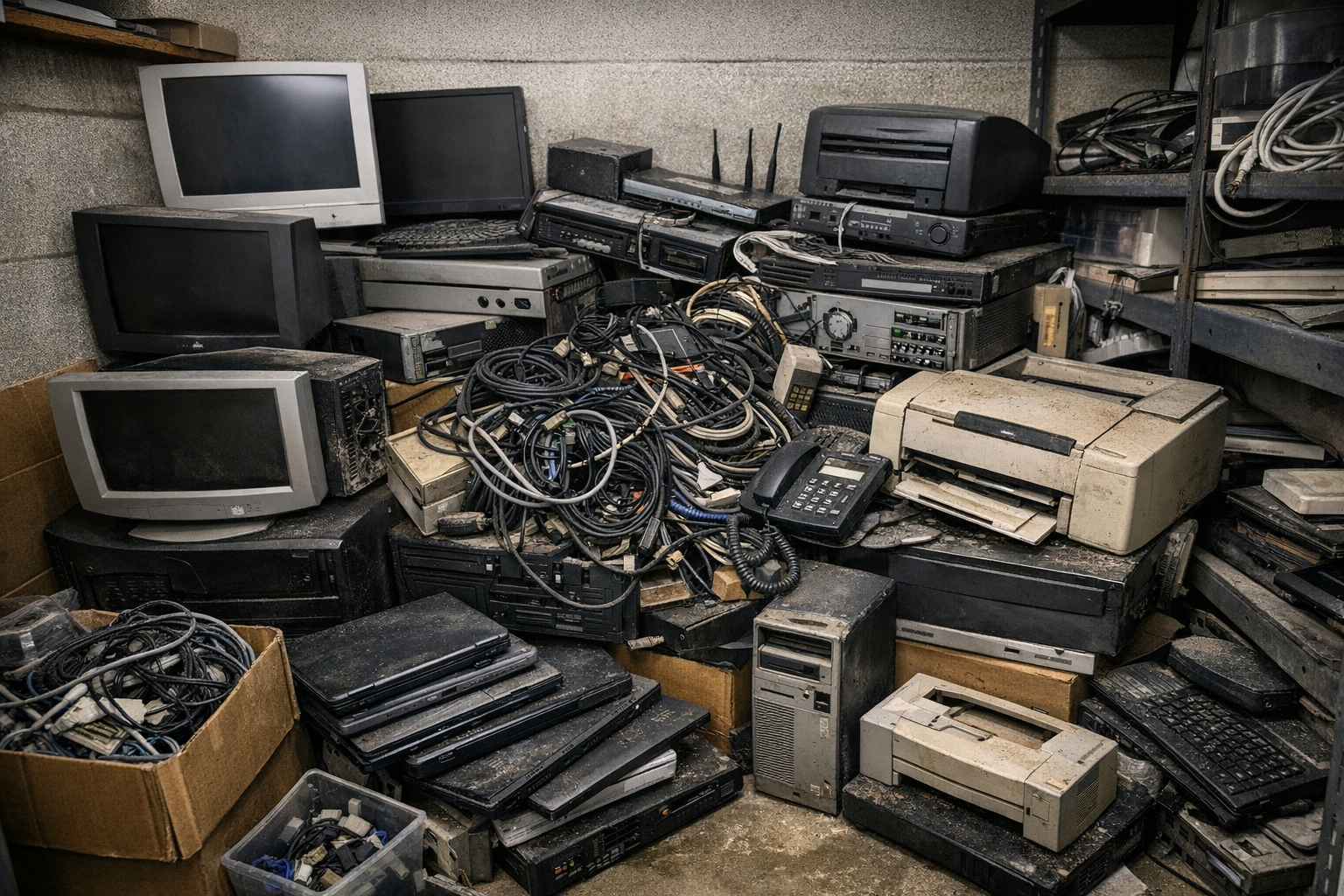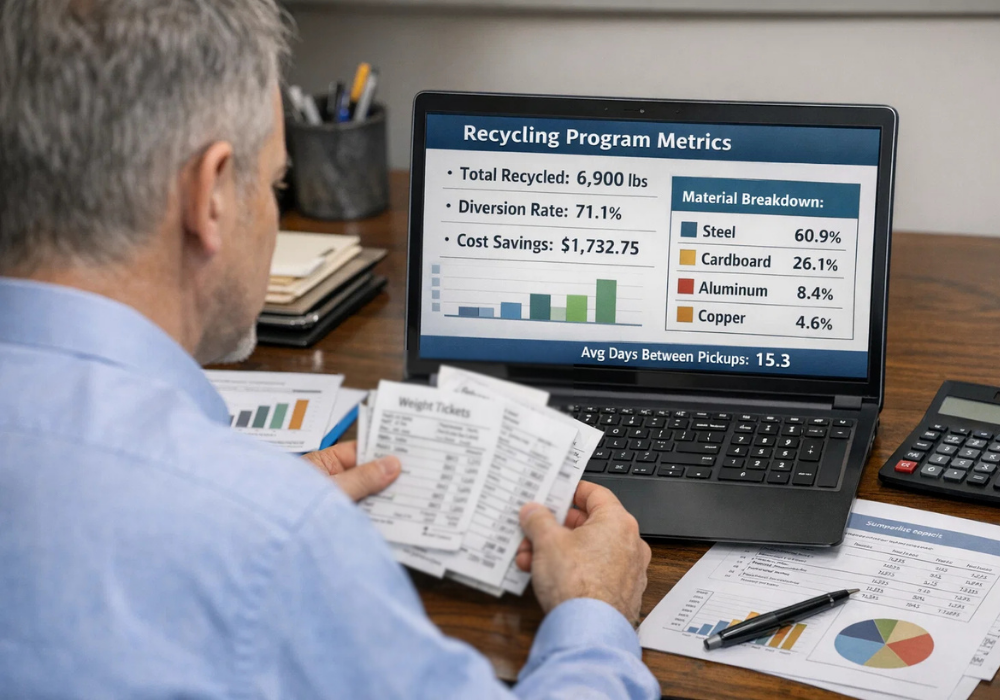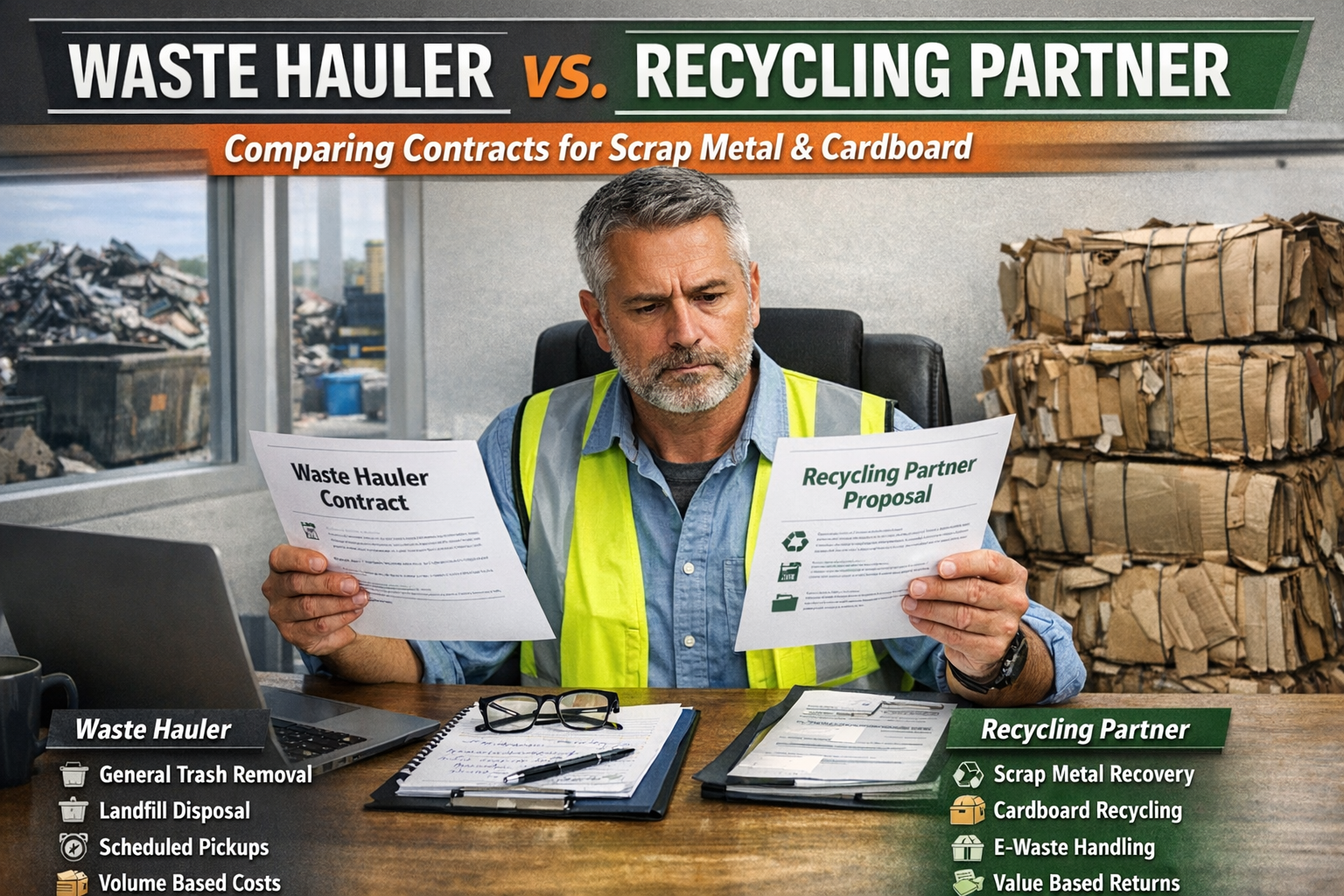Featured Snippet
Manufacturers embrace recycled metals because they reduce production costs by up to 95% in energy consumption, ensure stable material supply chains, and meet critical ESG sustainability targets. Recycled metals maintain identical quality to virgin materials while dramatically cutting carbon emissions, making them essential for modern manufacturing operations seeking both economic and environmental advantages.
Introduction
In today's manufacturing landscape, recycled metals aren't just an alternative—they're becoming the preferred choice for companies serious about their bottom line and environmental impact. As raw material costs fluctuate and sustainability regulations tighten, manufacturers across California and beyond are discovering that yesterday's scrap metal is today's competitive advantage.
The Economic Reality: Why Recycled Metals Make Business Sense
The numbers tell a compelling story. When manufacturers choose recycled aluminum over virgin material, they're looking at energy savings of approximately 95% [1]. For recycled steel, the energy reduction sits around 60-74% compared to producing new steel from iron ore [2]. These aren't marginal improvements—they're transformative cost reductions that directly impact profitability.
Consider a mid-sized California manufacturer processing 500 tons of aluminum annually. By switching to recycled aluminum, they could potentially save millions in energy costs alone. And that's before factoring in the reduced procurement costs, as recycled metals often price below virgin materials due to lower processing requirements.
But the economics extend beyond direct costs. Manufacturers using recycled metals can:
- Reduce dependency on volatile international commodity markets
- Lower transportation costs by sourcing from local recyclers
- Decrease waste disposal fees by implementing closed-loop systems
- Access tax incentives and grants for sustainable practices
Supply Chain Stability in an Uncertain World
Recent discussions around U.S. copper scrap export restrictions highlight a critical shift in how we view metal recycling [3]. Rather than shipping valuable scrap overseas, keeping these materials domestic strengthens local supply chains. For California manufacturers, this means more predictable access to essential materials.
The circular economy isn't just an environmental concept—it's a supply chain strategy. When manufacturers partner with mobile recycling services, they create resilient material loops that weather global disruptions better than traditional linear supply models. A construction equipment manufacturer in Sacramento, for instance, can send production scrap directly to recycling, then purchase recycled steel for new products, maintaining quality while reducing supply uncertainty.
This localized approach offers several advantages:
- Shorter lead times compared to international sourcing
- Reduced exposure to tariffs and trade disputes
- Better quality control through direct supplier relationships
- Enhanced supply chain transparency for ESG reporting
Meeting ESG Goals Through Metal Recycling
Environmental, Social, and Governance (ESG) criteria now influence investment decisions, customer choices, and regulatory compliance. For manufacturers, using recycled metals provides quantifiable sustainability metrics that matter to stakeholders.
The carbon footprint reduction is substantial. Recycling one ton of steel conserves 2,500 pounds of iron ore, 1,400 pounds of coal, and 120 pounds of limestone [4]. These savings translate directly into reduced Scope 3 emissions—the indirect emissions from a company's value chain that often represent the largest portion of corporate carbon footprints.
Major automotive manufacturers already demonstrate this commitment. Ford reports using recycled aluminum extensively in F-150 production, while Tesla incorporates significant percentages of recycled materials across their vehicle lines [5]. These aren't isolated examples but industry trends that cascade through supply chains, creating demand for reliable recycled metal sources.
How ESG Benefits Translate to Business Value
- Improved investor ratings: Companies with strong ESG scores often see lower costs of capital
- Customer preference: B2B buyers increasingly require sustainability documentation from suppliers
- Regulatory readiness: California's climate regulations continue evolving, and recycled content helps meet requirements
- Brand differentiation: Sustainability leadership creates competitive advantages in crowded markets
Quality Concerns: Addressing the Elephant in the Room
One persistent myth needs addressing: recycled metals somehow compromise product quality. This simply isn't true. Metals like aluminum and steel can be recycled indefinitely without degradation of their fundamental properties [6]. The same aluminum that goes into aerospace applications can come from recycled sources—and often does.
Modern recycling processes ensure material purity through:
- Advanced sorting technologies using optical scanners and eddy current separators
- Strict quality control protocols matching industry specifications
- Certification processes that verify material composition
- Testing procedures that guarantee performance standards
California manufacturers working with established recyclers receive materials meeting or exceeding virgin metal specifications. The key lies in partnering with recyclers who understand industrial requirements and maintain rigorous quality standards.
Building Your Closed-Loop System
Creating a closed-loop recycling system doesn't require massive infrastructure investment. It starts with evaluating your current metal waste streams and identifying recycling opportunities. Mobile recycling services can handle everything from production scrap to obsolete equipment, often providing same-week pickup that minimizes storage requirements.
Here's how manufacturers can implement effective recycling programs:
1. **Conduct a waste audit**: Identify all metal waste streams and volumes
2. **Establish collection systems**: Set up designated areas for different metal types
3. **Partner with reliable recyclers**: Choose services that offer transparency and proper documentation
4. **Track and measure impact**: Monitor recycling volumes and calculate environmental benefits
5. **Communicate achievements**: Share sustainability wins with customers and stakeholders
The most successful programs treat recycling not as waste management but as resource optimization. When that perspective shift happens, manufacturers often discover significant value they were literally throwing away.
The Path Forward for California Manufacturers
As California continues leading environmental initiatives, manufacturers here face both challenges and opportunities. The state's ambitious climate goals create pressure to reduce emissions, but they also drive innovation and market advantages for early adopters of sustainable practices.
Willis Recycling has partnered with Fortune 500 companies and local manufacturers throughout California, helping recover over 70 tons of metal in 2024 alone. This volume represents not just diverted waste but returned raw materials feeding back into production cycles. It's the circular economy in action, creating value while protecting our environment.
The future of manufacturing isn't just about what we make—it's about how we make it. And increasingly, that "how" involves embracing recycled metals as a core material strategy.
Ready to Transform Your Metal Waste Into Supply Chain Assets?
If you're a California manufacturer looking to reduce costs, meet sustainability goals, and strengthen your supply chain, it's time to rethink your approach to metal recycling. Contact Willis Recycling at (916) 271-2691 to discuss how mobile recycling services can support your operational and environmental objectives.
----
Works Cited
[1] The Aluminum Association — "Recycling." aluminum.org/recycling. Published: 2024. Accessed: 2024-12-19.
[2] World Steel Association — "Steel Recycling." worldsteel.org/steel-topics/circular-economy. Published: 2023. Accessed: 2024-12-19.
[3] Recycling Today — "US Copper Scrap Export Considerations." recyclingtoday.com/news. Published: 2024. Accessed: 2024-12-19.
[4] Institute of Scrap Recycling Industries — "Recycling Steel Facts." isri.org/recycling-commodities/steel. Published: 2024. Accessed: 2024-12-19.
[5] Ford Motor Company — "Sustainability Report 2023." corporate.ford.com/sustainability. Published: 2023. Accessed: 2024-12-19.
[6] International Aluminium Institute — "Infinite Recyclability." international-aluminium.org. Published: 2023. Accessed: 2024-12-19.



